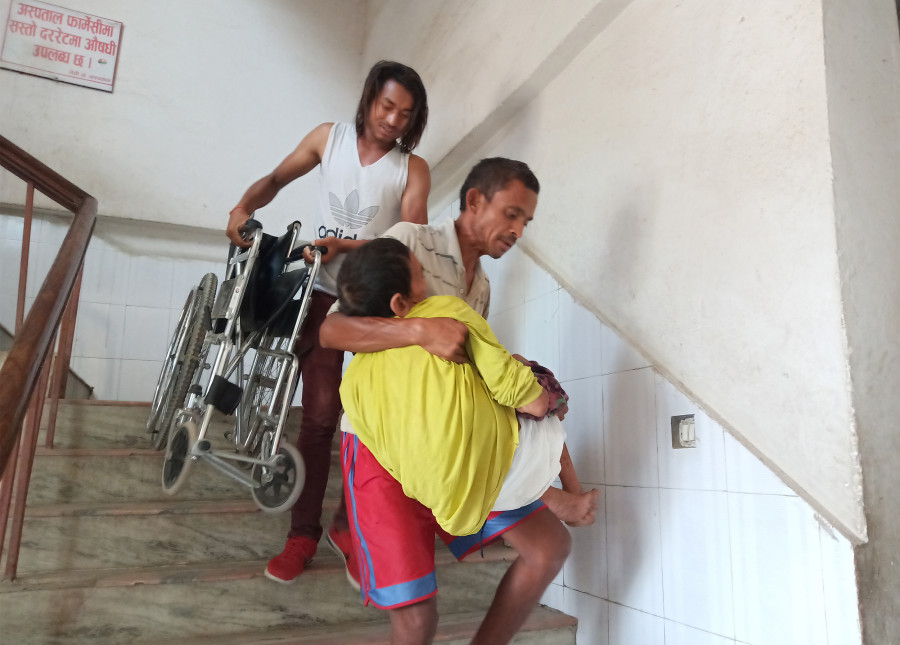Sudurpaschim Province
Lack of disabled-friendly infrastructure in Kailali makes life tough for the disabled
Even new government buildings are not accessible to people with disabilities, making it tough for them to avail of state services.
Nirmala Khadayat
Upendra Bahadur Khadayat, a disabled person, and his four friends, who also have physical disabilities, recently arrived at the Dhangadhi Sub Metropolis Office to seek services. However, none of the five could reach the chamber of Sushila Mishra, deputy mayor of the sub metropolis, as the office building is not disabled-friendly.
“The chamber of the deputy mayor is on the first floor where it’s impossible for people with disabilities to reach easily,” said Khadayat. Because of this, Khadayat and his friends had to request Mishra to come down to the ground floor to meet them. “A majority of government office buildings in Kailali district are not disabled-friendly,” said Khadayat, adding that the new government buildings being constructed have also failed to cater to the disabled.
Under the Accessible Physical Structure and Communication Service Directive for People with Disabilities of 2013, government agencies should install disabled-friendly physical facilities in all public buildings and spaces. However, a majority of government buildings in Dhangadhi are not disabled-friendly.
Khadayat said, “People like us face difficulties because most places, especially government offices, are not disabled-friendly. We demand the sub-metropolitan office to build infrastructure that is accessible to everyone. They should make it compulsory for all government offices to cater to the disabled while passing public building design.”
Bhawandra Singh, another disabled man, said that most of the disabled return from the premises of government buildings in the district, as they cannot climb the stairs. He said, “It is sad that office chiefs do not understand our problems.”
Bhawani Air, a disabled man, shared that he could only reach the Chief Minister’s Office in Sudurpaschim Province after taking help from other people. He said, “I have had to crawl on stairs to meet the chief minister. It was humiliating but I had no choice.”
According to the National Federation of the Disabled Nepal’s Office in Sudurpaschim, the office has notified the provincial government and ministries about the problem, but haven’t heard back from them. “The chiefs and deputy chiefs of the government offices should change their attitudes. In most of the government offices, the chambers of chief and deputy chiefs are located on higher levels. They should set up their office on the ground floor to ensure the rights of the disabled people,” said Khadayat.
In 2013, Nepal drafted the Accessible Physical Structure and Communication Service Guideline for People with Disabilities for enabling them to utilise their civil, political, economic, social, cultural rights and entitlements. Nepal has also ratified the UN Convention on the Rights of People with Disability in 2009 while disability rights are also mentioned in the Interim Constitution and National Policy and Plan of Action Regarding Disability of 2006.




 22.12°C Kathmandu
22.12°C Kathmandu















